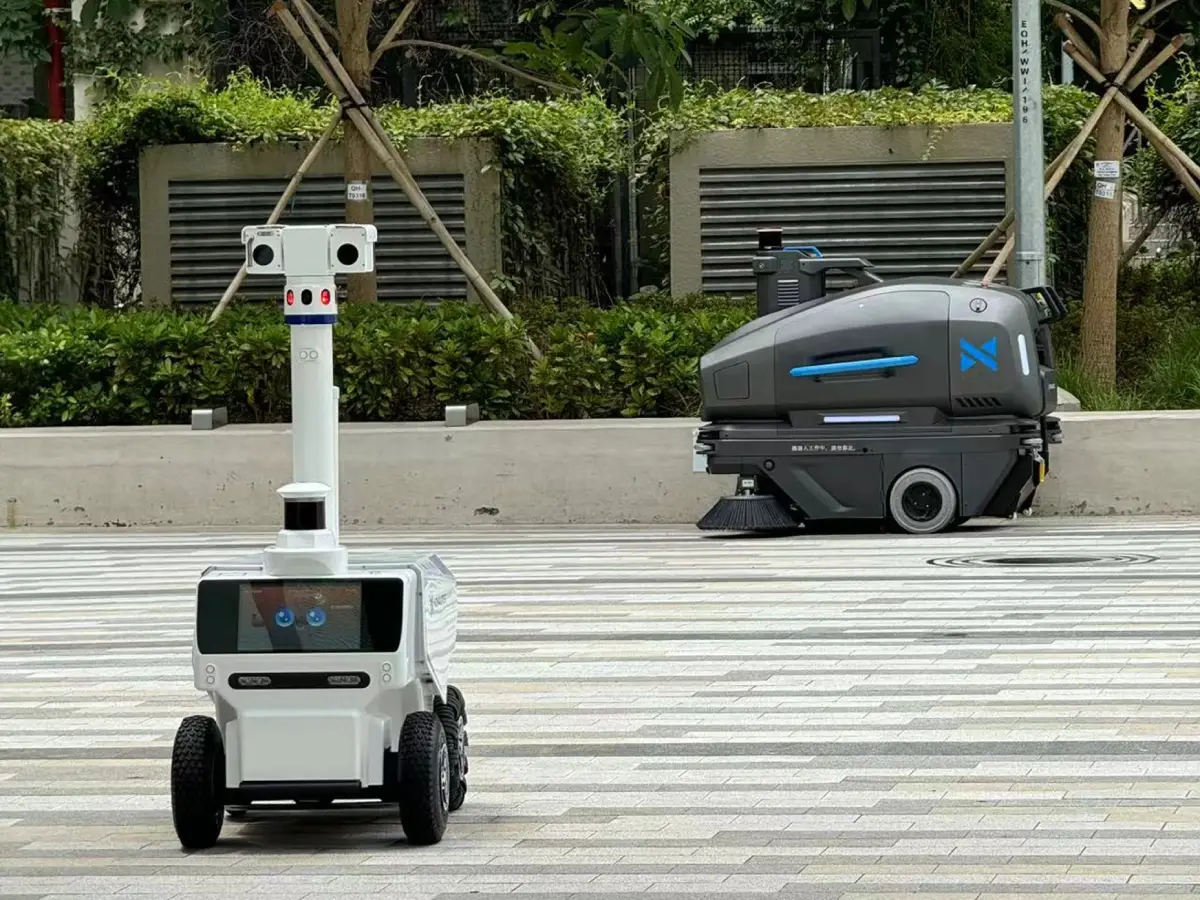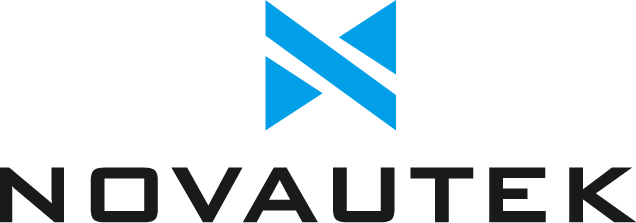הגברת יעילות תפעולית באמצעות רובוטי בינה מלאכותית
אוטומציה של משימות חוזרות בתיצור
רובוטים בינה מלאכותית הפכו להיות חשובים מאוד בידור התפקידים المملים והחזרתיים במכונים לייצור, מה שמעודד את הפעולה הכוללת של המפעלים. כשחברות בודקות את מה שעושים עובדים באופן ידני יום אחרי יום, הן מוצאות הרבה הזדמנויות להכניס את המכונות הללו לתפקידים כמו איסוף מוצרים על גבי שורות ייצור או לבדוק אם פריטים עומדים בסטנדרטים של איכות. התוצאות מדברות לעצמן - הרבה מפעלים מדווחים על זמני ייצור מהירים יותר, פשוט בגלל שמערכות בינה מלאכותית אינן עייפות או טועות כמו שאנשים לפעמים עושים. ניקח לדוגמה את תעשיית הרכב כמקרה בודד שבו דיוק הוא חשוב ביותר - הכל פשוט זורם חלק יותר כשיש רובוטים שטפלים בעבודה כבדה בעוד שבני אדם ממקד themselves בפתרון בעיות. ומעניין, גם כשברור שהתכנולוגיה של בינה מלאכותית הופכת להיות יותר חכמה כל הזמן, עדיין יש צורך לאזן בצורה עדינה בין הפעלת מכונות לטיפול במשימות מסוימות לבין החלפת עובדים מוכשרים שמגלים את התחכום בתהליכי ייצור מורכבים.
אופטימיזציה של זרימת עבודה בהשראת בינה מלאכותית בלוגסטיקה
אינטליגנציה מלאכותית משנה את אופן הפעולה של הלוגיסטיקה בכלל, ומדגישה שיפורים ביצועיים בתכנון מסלולי משלוחים ובניהול עומסי מטענים. המעניין הוא עד כמה שדרוגים טכנולוגיים אלה מפחיתים את העיכובים במשלוחים, דבר שהרבותה מחסנים וחברות תחבורה כבר שמו לב אליו בעיניהם. חברות ברחבי העולם מתחילות להטמע את מערכות ה-I.A לתוך תהליכי העבודה היומיומיים, מה שמוביל לשיפורים ניכרים בניהול הפעילות היומית. גם הדרך שעומדת לפנינו נראית מרגשת. אנו רואים עניין גובר במשאיות אוטונומיות ואופציות תחבורה אוטומטיות אחרות שיכולות להפוך את הדרך בה מזיזים סחורות ברחבי העולם. למרות שעדיין יש עבודה רבה עד שהטכנולוגיות האלה יהפכו לסטנדרט, מחלוצי הדרך כבר חווים את הפרטים - למשל משלוחים מהירים יותר ופחתה בהוצאות. חלק מהמומחים מאמינים שנראה שינויים גדולים אפילו יותר, כאשר חברות ימשיכו לגלות דרכים חדשות להטמעת למידת מכונה בשרשראות האספקה שלהן.
שיפור קבלת ההחלטות באמצעות תובנות מונעות על ידי בינה מלאכותית
אנליטיקה ניבואית לניהול שרשרת האספקה
למנהלי שרשרת אספקה, אנליטיקה חיזויית הפכה לכלי חיוני בימינו כדי להבין מה הלקוחות ירצו בהמשך ולשמור על רמות מלאי אופטימליות. חברות חוזרות אל נתוני מכירות קודמים ומעבדות אותם באמצעות מודלים מתמטיים מתקדמים כדי לשפר את ניבוי דפוסי הביקוש. זה עוזר בהפחתת מצבים מפריעים שבהם מוצר נמצא באחריון או שстоוף במלאי ללא תנועה. קיימות מגוון תוכנות בשוק שמאפשרות את כל זה, רבות מהן מציגות פאנלי בקרה שפשוטים לשימוש ואינם דורשים תואר מתקדם. רוב העסקים כבר החלו לאמץ את כלים אלו מאחר שהם פשוט עובדים טוב מכדי להתעלם מהם. הם מאפשרים לארגונים להישאר קדימה מדרישות הלקוח מבלי לקשור הון בעודף מלאי שלא זז.
פירוש נתונים בזמן אמת בריאות
בינה מלאכותית הפכה להיות חשובה מאוד בבריאות pública כשמדובר בפירוש של כל נתוני הבריאות בזמן אמת, במיוחד בסיטואציות חירומיות מלחיצות שבהן הרופאים צריכים לקבל החלטות במהירות. במרפאות רבות שהחלו להשתמש בטכנולוגיית בינה מלאכותית ניכרים שיפור בתוצאות של המטופלים ופחות טעויות. לדוגמה, מערכות בינה מלאכותית מסוגלות לעבד כמויות עצומות של קבצי מטופלים תוך שניות ומסמנות בדיוק מה הרופאים צריכים לדעת כרגע על מנת לקבל החלטות טיפוליות. זה מזרז את התהליכים ופוחת את כמות הטעויות. מה שמרגש אפילו יותר זה לאן הטכנולוגיה הזו תיקח אותנו בהמשך. כבר עכשיו אנו רואים שימוש בבינה מלאכותית למעקב אחר בריאותם של אנשים לאורך זמן, עוקבת אחרי דפוסים בנתונים שלהם כדי שנוכל לזהות בעיות לפני שהן הופכות לחserious. המערכת הזו של אזהרה מוקדמת מאפשרת לנו להשתתף הרבה לפני שהיינו יכולים בעבר, מה ששינה את כל המשחק כשמדובר בשמירה על בריאות האנשים במקום טיפול בהם לאחר שמשהו השתבש.
אסטרטגיות להפחתת עלויות באמצעות אוטומציה של الذכاء המלאכותי
אופטימיזציה של צריכת האנרגיה במבנים
בינה מלאכותית שינתה את הדרך בה אנו מנהלים צריכה של אנרגיה במכרות ובמשרדים כאחד. מערכות חכמות אלו מזהות היכן אנרגיה מושחת ומציעות דרכים טובות יותר להיעזר בה, מה שמוריד את חשבונות החשמל בצורה דרמטית. הבט על מה שקורה ברחבי העולם - יצרנים מגרמניה ועד יפן מטמעים את כלי הבינה המלאכותית הללו בפעולה עם תוצאות מרשימות. מה הופך אותם כל כך מועילים? ובכן, הם ממשיכים ללמוד ומתאימים את עצמם עם שינוי התנאים לאורך היום. מנהלי מבנים אוהבים את זה בגלל שמבנים אינם פועלים באותה הדרך כל הזמן. חלק מהימים דורשים פיקות של ביקוש ואחרים שלווים, והמערכות הללו מטפלות בשינויים הללו מבלי שיהיה צורך בפיקוח אנושי מתמיד. חברות שמחסכות כסף על חשבונות החשמל שלהן ועדיין שומרות על הסביבה? זוהי תוצאה מיטבית שאיש לא ציפה לה לפני מספר שנים בלבד.
מערכות ניהול מלאי מבוססות בינה מלאכותית
ניהול מלאי השתנה קיצונית מאז ש-AI הצטרף, ועוזר לעסקים לעקוב אחרי רמות המלאי ולגלות מתי לבצע הזמנה חוזרת. מערכות חכמות אלו סומכות על מתמטיקה מורכבת ברקע כדי לאזן את המלאי מבלי לגלוש למלאי שלילי או להחזיק יותר מדי סחורה במקום. חברות שמאמצות כלים מבוססי AI לרוב תראו שיעור גבוה יותר של סיבוב מלאי, חוסכות כסף ובעודכן את תהליכי הפעולה. כאשר משלבים את זה עם תוכנות מלאי קיימות, רבות מהחברות מגלות שהן מנהלות את העסק בצורה טובה יותר ושמרשימות את המתחרים בשוק. הסיבה שזה עובד כל כך טוב היא כיצד ה-AI מספק מידע מיידי על מצב המלאי, ומאפשר למנהלים לקבל החלטות במהירות במקום להמתין לדוחות. תגובתיות כזו עוזרת לאופטימיזציה של רמות המלאי בכלל ותורמת משמעותית לצמיחה עסקית ארוכת טווח.
מהפכה באינטראקציות עם לקוחות באמצעות רובוטי בינה מלאכותית
תמיכה 24/7 של צ'אטבוטים בتج retail
חנויות קמעונאות עוברות שינוי משמעותי בזכות צ'אט-בוטים שמספקים תמיכה 24/7 ומשנים לחלוטין את האופן בו קונים מתקשרים עם מותגים. הבוטים החכמים הללו מסוגלים להבין את מה שהאנשים שואלים כי הם מצוידים במיומנויות שפה מתקדמות, מה שפירושו שצרכנים מקבלים תשובות מהירות ולא נאלצים להישאר על גבי ההמתנה למשך שעות. על פי מחקרים אחרונים, כ-65% מהצרכנים מציינים כי הם מרגישים מרוצים יותר לאחר שדיברו עם עוזר וירטואלי מאשר לאחר שחכו לייצוגן אנושי. מותגי מובילות בענף הקמעונאות כמו אמזון וולמארט שילבו את הצ'אט-בוטים בתוך האתרים והיישומים שלהן, ומאפשרות לצרכנים לאתר מוצרים לעקוב אחרי הזמנות ואפילו להזמין החזרות מבלי להרים את הטלפון. למרות שחלק מהאנשים עדין מעדיפים לדבר עם אנשים אמיתיים, הרוב מרגיש מרוצה מהמהירות והדיוק שהעוזרים הדיגיטליים מביאים לשולחן, ובסופו של דבר הופכים את חוויית הקנייה לחלק יותר ולהביאה ליצירת נאמנות למותג לאורך זמן.
המלצות אישיות דרך למידת מכונה
המלצות מונעות בלמידה מכאנית משנות את הדרך בה אנשים קונים באינטרנט, ומאפשרות לחברות להציע מוצרים שמתאימים באמת למה שאנשים רוצים. האלגוריתמים בודקים דברים כמו רכישות קודמות, פריטים שמשתמש לחץ עליהם, ואפילו את משך הזמן שבו מישהו מרחף מעל מוצר מסוים לפני שהם חוזים מה עלול לעורר את עניינם בהמשך. קמעונאות רואות תוצאות ממשיות מהגישה הזו. מותג בגדים גדול דיווח על עלייה של 30% במכירות לאחר שהטמעה מערכות המלצות מתקדמות יותר, מכיוון שצרכנים הרגישו שהאתר באמת מבין את מה שהawah להם. בהמשך, ככל שזוהי הבינה המלאכותית תתפתח, סביר להניח שנראה המלצות שדיוקן ימשיך להשתפר. חברות כבר מנסות גישות חדשות לשלב סוגים שונים של נתונים, כך שההצעות שלהן לא יתבססו רק על מה שרכשו בעבר אלא גם על גורמים כמו דפוסי מזג אוויר או אירועים מקומיים שעלולים להשפיע על החלטות קנייה.
קידום חדשנות ויתרון תחרותי
שדרוג מהיר עם בינה מלאכותית יוצרת
העלייה של الذכاء המלאכותי הדורש מסמנת מפנה אמיתי בגישה שלנו לעיצוב בעבודה בימינו. לחברות יש כעת גישה לכלי שמייצרים עיצובים פרוטוטיפיים במהירות רבה בהשוואה למה שהיה אפשרי בעבר. לדוגמה, יצרני רכב משתמשים במערכות אלו כדי לבדוק מאות עיצובים של גוף רכב בלילה אחד במקום להשקיע שבועות בעבודה שרטוט ידנית. الذכاء המלאכותי הדורש מצטיין במיוחד ביצירת פרוטוטיפים מורכבים במהירות, מה שממהר את תהליך פיתוח המוצר בכלל. זמן קצר יותר לשווקים פירושו שחברות יכולות להגיב מהר יותר להחזרי הקשר של הלקוחות ולבצע התאמות אישיות לה предложения. בתים אופנתיים, משרדי אדריכלות ואפילו יצרני ציוד רפואי ממהרים להצטרף לתהליך הזה, ופותרים פתרונות יצירתיים שלא היו מגלים בדרך הקונבנציונלית בלבד.
ניתוח שוק מונע על ידי בינה מלאכותית לתכנון אסטרטגי
ניתוח שוק מונע בזך הבינה המלאכותית משנה את הדרך בה חברות תכנן את האסטרטגיות שלהן, ונותנת להן הבנה טובה בהרבה יותר מתרחש בשווקים וכיצד צרכנים מתנהגים. כלים כמו תוכנות ניתוח פרגנטיות ומודלי למידת מכונה הם חשובים במיוחד כדי לקבל תובנות פנימיות על תנאי שוק. מחקרים עדכניים מראים שחברות המשתמשות בטכנולוגיות אלו נוטות לנצח את המתחרים שלהן ברוב המקרים. מה שעושה לכלים הללו כל כך מועילים הוא היכולת שלהם לזהות דפוסים צומחים מוקדם מאוד ולהנבא לאן הדברים עשויים לנוע הלאה. זה נותן למנהלי עסקים את המידע מתוך העולם האמיתי שהם צריכים כשמחליטים האם להרחיב קווי מוצרים, להיכנס לשווקים חדשים, או להתאים אסטרטגיות מחירים בהתבסס על אותות ביקוש אמיתיות במקום ניחושים.

מגמות עתידיות בבוטיקה מבוססת בינה מלאכותית לעסקים
רובוטים לומדים באופן עצמאי בתפעול אוטונומי
רובוטים לומדים באופן עצמאי משנים את מה שאנו מצפים מהמכונות שפועלות באופן עצמאי בתחומים שונים. מכשירים חכמים אלו משתמשים באלגוריתם בינה מלאכותית כדי לעבד כמויות עצומות של מידע ולשפר את ביצועיהם, מה שעושה אותם שימושיים במיוחד באתרי בנייה ובעמקים חקלאיים. תחזיות מסוימות מצביעות על כך שמערכות אוטומטיות אלו עשויות אף להפחית את עלויות כוח העבודה, מה שנוגע לרווחיות של העסקים. בהמשך, יש שפע של מקום לצמיחה, שכן הרובוטים הללו מוכנים לאמץ אתגרים מורכבים יותר. אנחנו כבר רואים פרוטוטיפים שפועלים בזירות מחדלים שבהן התנאים משתנים כל הזמן, וכן אחרים שנבדקים במחסנים בעונות שיא כאשר הביקוש עולם באופן לא צפוי. אבולוציה זו מציגה עד כמה מכונות המונעות על ידי בינה מלאכותית מסוגלות לשנות את הגישה שלנו לאוטומציה.
מסגרות ממשלתיות לאתייקה בבינה מלאכותית
במהלך השנים הפך ה- AI לנחלת הכלל, ולכן חשוב שחברות יקיימו כללי מוסר ברורים אם הן מתכוונות לפתח ולשלב אותו בצורה אחראית. בעקר, מערכות ה- AI כבר החלו формиров את הדרך שבה פועלת החברה, ולכן חברות גדולות החלו לפרסם את הקודים האתיים שלהן, רק כדי להימנע מקנסות או מבעיות רגולטוריות. ראינו מספר מקרים בולטים של חברות שנפגעו בגלל שלא חשבו על היבטים מוסריים מראש. וכמו שאומרים, עם כל השינויים המהירים שעוברים על ה- AI, קשה להניח שהממשל יישב על הידיים לזמן רב. צפויים להופיע חוקים חדשים שיקבעו אילו פעולות תואמות ובלתי תואמות את החוק. כשחברות באמת מתחייבות לשימוש מוסרי ב- AI, יש סיכוי שהציבור יאמין בהן יותר וישארו מחוץ לבעיה פלילית. זה נשמע הגיוני הן מבחינה מוסרית והן מבחינה תפעולית, מאחר שאף אחד לא רוצה לבזבז כסף על תיקון בעיות שתוכנית טובה מראש הייתה יכולה למנוע.
שאלות נפוצות
מהם היתרונות העיקריים בשימוש בוטות בינה מלאכותית בייצור?
בוטות בינה מלאכותית תורמות לשיפור היעילות التشоперתית על ידי מזעור שגיאות אנוש והגברת הפרודוקטיביות והאיכות בייצור.
איך בינה מלאכותית מעדכנת תהליכי לוגיסטיקה?
בינה מלאכותית אופטימיזת לוגיסטיקה על ידי פשטת פעולות, כגון ניהול נתיבים ומשאבים, מה שמוביל לקצירת זמני משלוח וליצירת יעילות משופרת.
האם אנליטיקה חזוית יכולה להשפיע משמעותית על הניהול במיתקן?
כן, אנליטיקה חזוית יכולה לשפר משמעותית את הניהול בمخסנים על ידי ניבוי מדויק של תנודות הביקוש, הקטנת מחסור במלאי והגברת שביעות רצון הלקוחות.
אילו תפקיד מבינה מלאכותית ממלאה בפער בין נתוני הבריאות לבין ההבנה בהם בתחום הרפואי?
מערכות בינה מלאכותית מעבדות כמויות עצומות של נתוני בריאות בזמן אמת, ומסייעות בקבלת החלטות מהירה ומדויקת, מה שקריטי בסיטואציות מצוקה רפואיות.
איך מערכות ניהול מלאי מבוססות בינה מלאכותית עוזרות לעסקים?
מערכות המונעות על ידי בינה מלאכותית מעדנות רמות המלאי, מונעות מלאי מיותר וחוסר מלאי, ומגבירות את קצב הסיבוב במלאי, מה שמוביל לחיסכון בעלות ויעילות בתפעול.
האם צ'אט-בוטים מבוססי בינה מלאכותית מגדירים מחדש את האינטראקציה עם הלקוחות בתעשייה הקמעונאית?
כן, צ'אט-בוטים מבוססי בינה מלאכותית מספקים תמיכה ללקוחות 24/7, מה שמkür זמן תגובה ומשפר את שביעות הרצון של הלקוחות.
מהן המגמות העתידיות לרובוטיקה של בינה מלאכותית בעסקים?
מגמות כוללות אימוץ של רובוטים לומדים את עצמם לפעולות אוטונומיות, תוך הדגש על יעילות וחדשנות, לצד הקמת מסגרות של ממשל אינטליגנטי אתי.
תוכן העניינים
- הגברת יעילות תפעולית באמצעות רובוטי בינה מלאכותית
- שיפור קבלת ההחלטות באמצעות תובנות מונעות על ידי בינה מלאכותית
- אסטרטגיות להפחתת עלויות באמצעות אוטומציה של الذכاء המלאכותי
- מהפכה באינטראקציות עם לקוחות באמצעות רובוטי בינה מלאכותית
- קידום חדשנות ויתרון תחרותי
- מגמות עתידיות בבוטיקה מבוססת בינה מלאכותית לעסקים
-
שאלות נפוצות
- מהם היתרונות העיקריים בשימוש בוטות בינה מלאכותית בייצור?
- איך בינה מלאכותית מעדכנת תהליכי לוגיסטיקה?
- האם אנליטיקה חזוית יכולה להשפיע משמעותית על הניהול במיתקן?
- אילו תפקיד מבינה מלאכותית ממלאה בפער בין נתוני הבריאות לבין ההבנה בהם בתחום הרפואי?
- איך מערכות ניהול מלאי מבוססות בינה מלאכותית עוזרות לעסקים?
- האם צ'אט-בוטים מבוססי בינה מלאכותית מגדירים מחדש את האינטראקציה עם הלקוחות בתעשייה הקמעונאית?
- מהן המגמות העתידיות לרובוטיקה של בינה מלאכותית בעסקים?

